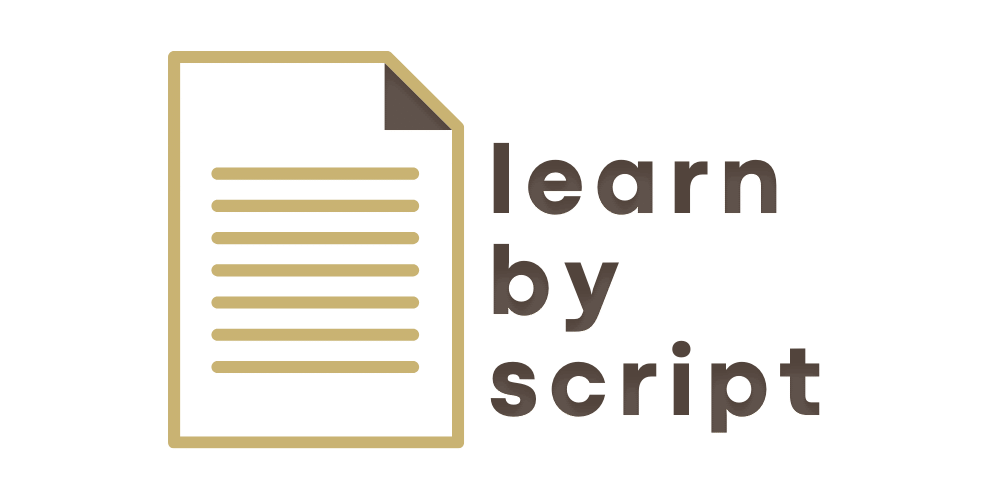Personal development refers to the process of improving oneself through various activities and practices. It involves enhancing skills, knowledge, mindset, and overall well-being. Personal development is a lifelong journey that allows individuals to reach their full potential and achieve success in various aspects of life.
Personal development is important because it enables individuals to grow and evolve as individuals. It helps them become more self-aware, confident, and resilient. By investing time and effort into personal development, individuals can improve their relationships, career prospects, and overall quality of life.
The benefits of personal development are numerous. It helps individuals set and achieve goals, develop a positive mindset, improve communication skills, enhance emotional intelligence, become effective leaders, manage finances wisely, improve health and wellness, and build a strong personal brand. By focusing on personal development, individuals can unlock their true potential and create a fulfilling and successful life.
Key Takeaways
- Personal development is important for achieving success and fulfillment in life.
- Developing a positive and growth-oriented mindset is crucial for personal growth.
- Setting and achieving goals requires specific strategies and techniques.
- Effective time management can help maximize productivity and efficiency.
- Improving interpersonal communication skills can enhance relationships and success.
Mindset Mastery: Developing a Positive and Growth-Oriented Mindset
The power of mindset cannot be underestimated. Our mindset determines how we perceive and respond to the world around us. A positive and growth-oriented mindset is essential for personal development as it allows individuals to overcome challenges, learn from failures, and continuously improve.
To develop a positive and growth-oriented mindset, it is important to cultivate self-awareness. This involves recognizing negative thought patterns and replacing them with positive ones. It also involves reframing challenges as opportunities for growth and learning.
Overcoming limiting beliefs is another crucial aspect of mindset mastery. Limiting beliefs are negative thoughts or beliefs that hold us back from reaching our full potential. By identifying and challenging these beliefs, we can break free from self-imposed limitations and achieve greater success.
Goal Setting and Achievement: Strategies for Setting and Achieving Your Goals
Goal setting is an important aspect of personal development as it provides direction and motivation. Without clear goals, it is easy to feel lost and unfulfilled. Setting goals allows individuals to focus their energy and efforts on what truly matters to them.
When setting goals, it is important to follow the SMART framework. SMART stands for Specific, Measurable, Achievable, Relevant, and Time-bound. This framework ensures that goals are clear, realistic, and actionable.
To achieve goals, it is important to develop effective strategies. This may involve breaking down big goals into smaller, manageable tasks, creating a timeline, seeking support from others, and tracking progress. By implementing these strategies, individuals can stay motivated and make steady progress towards their goals.
Time Management: Maximizing Your Productivity and Efficiency
| Topic | Metric |
|---|---|
| Time Management | Number of hours spent on non-productive tasks |
| Productivity | Number of tasks completed per day/week/month |
| Efficiency | Time taken to complete a task |
| Time Management | Number of interruptions/distractions per day |
| Productivity | Percentage of tasks completed on time |
| Efficiency | Number of tasks completed within a given time frame |
| Time Management | Number of times multitasking is done in a day |
| Productivity | Number of tasks completed with high quality |
| Efficiency | Time taken to complete a task with high quality |
Time management is a crucial skill for personal development as it allows individuals to make the most of their time and resources. Effective time management enables individuals to prioritize tasks, avoid procrastination, and achieve more in less time.
There are various time management techniques that individuals can use to improve productivity and efficiency. These include creating a schedule or to-do list, setting deadlines, eliminating distractions, delegating tasks when possible, and practicing self-discipline.
Prioritizing tasks is another important aspect of time management. By identifying the most important and urgent tasks, individuals can allocate their time and energy accordingly. This helps prevent overwhelm and ensures that important tasks are completed in a timely manner.
Overcoming procrastination is a common challenge when it comes to time management. To overcome procrastination, it is important to understand the underlying reasons behind it and develop strategies to overcome it. This may involve breaking tasks into smaller, more manageable steps, setting deadlines or rewards for completing tasks, or seeking accountability from others.
Communication Skills: Improving Your Interpersonal Communication Skills
Effective communication is essential for personal development as it allows individuals to build strong relationships, resolve conflicts, and collaborate effectively with others. Good communication skills enable individuals to express themselves clearly and listen actively.
Active listening is a key component of effective communication. It involves fully focusing on and understanding the speaker’s message. Active listening requires individuals to pay attention, ask clarifying questions, and provide feedback. By practicing active listening, individuals can improve their relationships and avoid misunderstandings.
Nonverbal communication is another important aspect of effective communication. Nonverbal cues such as body language, facial expressions, and tone of voice can convey messages and emotions. By being aware of and using nonverbal cues effectively, individuals can enhance their communication skills and build rapport with others.
Emotional Intelligence: Enhancing Your Self-Awareness and Empathy

Emotional intelligence refers to the ability to recognize, understand, and manage one’s own emotions as well as the emotions of others. It is a crucial skill for personal development as it allows individuals to navigate social interactions, build strong relationships, and make informed decisions.
Self-awareness is a key component of emotional intelligence. It involves recognizing and understanding one’s own emotions, strengths, weaknesses, and values. By developing self-awareness, individuals can make better choices, manage stress effectively, and build authentic relationships.
Empathy is another important aspect of emotional intelligence. It involves understanding and sharing the feelings of others. By practicing empathy, individuals can build stronger connections with others, resolve conflicts more effectively, and collaborate successfully.
Strategies for enhancing emotional intelligence include practicing self-reflection, seeking feedback from others, developing empathy through active listening, and managing emotions effectively through techniques such as deep breathing or journaling.
Leadership Development: Becoming a Strong and Effective Leader
Leadership development is an important aspect of personal development as it allows individuals to become strong and effective leaders in various areas of life. Leadership skills are valuable not only in the workplace but also in personal relationships and community involvement.
Characteristics of a strong leader include integrity, empathy, resilience, effective communication skills, and the ability to inspire and motivate others. By developing these characteristics, individuals can become influential leaders who can drive positive change and achieve success.
There are various leadership styles that individuals can adopt depending on the situation and the needs of the team or organization. These include autocratic, democratic, transformational, and servant leadership styles. By understanding different leadership styles and their strengths and weaknesses, individuals can adapt their approach to different situations.
Developing leadership skills involves continuous learning and growth. This may involve seeking mentorship or coaching, attending leadership development programs or workshops, reading books or articles on leadership, and practicing leadership skills in real-life situations.
Financial Literacy: Managing Your Finances and Building Wealth
Financial literacy is an important aspect of personal development as it allows individuals to make informed decisions about their finances and build long-term wealth. By understanding basic financial concepts and developing good financial habits, individuals can achieve financial security and independence.
Importance of financial literacy cannot be overstated. It enables individuals to budget effectively, save money, manage debt wisely, invest for the future, and protect themselves from financial risks. By developing financial literacy skills, individuals can make sound financial decisions that align with their goals and values.
Budgeting and saving are key components of financial literacy. Budgeting involves tracking income and expenses and allocating money towards different categories such as housing, transportation, food, and entertainment. Saving involves setting aside a portion of income for future needs or emergencies.
Investing is another important aspect of financial literacy. By investing wisely, individuals can grow their wealth over time and achieve long-term financial goals such as retirement or buying a home. It is important to understand different investment options such as stocks, bonds, mutual funds, real estate, or starting a business.
Health and Wellness: Improving Your Physical and Mental Health
Health and wellness are crucial aspects of personal development as they enable individuals to live a fulfilling and balanced life. By prioritizing physical and mental health, individuals can improve their overall well-being and achieve success in other areas of life.
Importance of health and wellness cannot be overstated. Physical health involves taking care of the body through regular exercise, proper nutrition, and adequate rest. Mental health involves taking care of the mind through stress management, self-care practices, and seeking support when needed.
Exercise and nutrition are key components of physical health. Regular exercise helps improve cardiovascular health, build strength and endurance, and boost mood and energy levels. Proper nutrition involves consuming a balanced diet that includes fruits, vegetables, whole grains, lean proteins, and healthy fats.
Stress management and self-care are important aspects of mental health. Stress management techniques include deep breathing exercises, meditation, yoga, or engaging in hobbies or activities that bring joy and relaxation. Self-care involves prioritizing one’s own needs and taking time for activities that promote well-being.
Personal Branding: Building Your Personal Brand and Reputation
Personal branding refers to the process of creating a unique identity and reputation for oneself. It involves showcasing one’s skills, expertise, values, and personality to stand out from the crowd and create opportunities for success.
Importance of personal branding cannot be underestimated. A strong personal brand helps individuals differentiate themselves from others in a competitive market. It allows individuals to build credibility, attract opportunities, and create a positive impression on others.
Strategies for building a personal brand include identifying one’s unique strengths and values, defining a clear personal mission statement or elevator pitch, creating a professional online presence through platforms such as LinkedIn or personal websites, networking with others in the industry or field of interest, and consistently delivering high-quality work.
Conclusion: The Importance of Personal Development in Achieving Success
In conclusion, personal development is crucial for achieving success in various aspects of life. By investing time and effort into personal development, individuals can enhance their skills, knowledge, mindset, and overall well-being. Personal development enables individuals to set and achieve goals, develop a positive mindset, improve communication skills, enhance emotional intelligence, become effective leaders, manage finances wisely, improve health and wellness, and build a strong personal brand.
It is never too late to start your personal development journey. By taking small steps each day towards self-improvement, you can unlock your true potential and create a fulfilling and successful life. Remember that personal development is a lifelong journey, and it requires commitment, self-reflection, and continuous learning. Embrace the process and enjoy the transformation that personal development brings.
If you’re interested in personal development, you may find this article on LearnByScript.com intriguing. It delves into the concept of Ikigai, a Japanese philosophy that helps individuals find their reason for living and achieve a sense of fulfillment. The article provides a breakdown of Ikigai and offers practical tips on how to discover your own purpose in life. For those looking to enhance their personal growth journey, this article is definitely worth a read. Check it out here: https://learnbyscript.com/find-your-reason-for-living-ikigai-breakdown/.
FAQs
What are personal development niches?
Personal development niches are specific areas of personal growth and self-improvement that individuals can focus on to enhance their overall well-being and achieve their goals.
What are some examples of personal development niches?
Some examples of personal development niches include mindfulness and meditation, time management, goal setting, self-confidence, communication skills, leadership development, financial management, and health and wellness.
Why are personal development niches important?
Personal development niches are important because they help individuals identify areas of their lives that need improvement and provide them with the tools and resources to make positive changes. By focusing on personal development, individuals can enhance their overall well-being, achieve their goals, and live a more fulfilling life.
How can I find the right personal development niche for me?
To find the right personal development niche for you, start by identifying areas of your life that you want to improve. Consider your goals, values, and interests, and look for niches that align with these factors. You can also seek guidance from a personal development coach or counselor to help you identify the right niche for you.
What are some resources for personal development?
There are many resources available for personal development, including books, podcasts, online courses, workshops, and coaching services. Some popular resources include Tony Robbins, Brené Brown, Tim Ferriss, and Marie Forleo. It’s important to do your research and find resources that align with your personal development goals and values.







